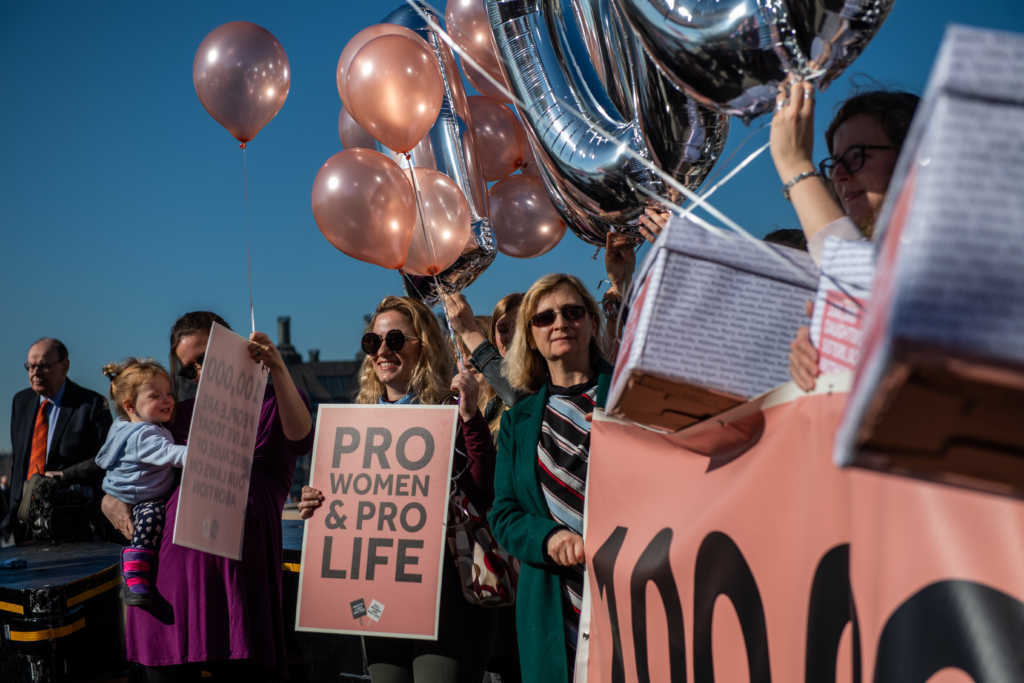An evangelical advisory group has warned that Northern Ireland could become a European leader in liberal abortion laws if the new legislative proposals are not tamed.
The proposed regulatory framework would allow completely unrestricted and uncertified terminations up to 12 or 14 weeks.
Abortion up to 22 or 24 weeks would also be allowed for almost any reason, including mental well-being, as long as it is signed off by a doctor.
The consultation is being held after the British parliament decriminalized the procedure through a majority parliamentary vote in July. The ban was lifted on October 21.
“Twelve weeks gestation has been considered because it is the end of the first trimester of pregnancy and in England and Wales 90% of abortions are performed within this timeframe,” the consultation reads, according to the Belfast Telegraph.
“However, an alternative approach would be allowing for a termination up to 14 weeks gestation without conditionality, as some women and girls may have been delayed in finding out that they are pregnant and others may need more time to reach a decision.”
It added that “no certificate of opinion may be required from a doctor for the early termination (up to 12/14 weeks gestation) because it is proposed that termination will be available up to this gestational limit without any medical grounds being required to be met.”
Peter Lynas, the director of the Christian lobby group The Evangelical Alliance, told Christian Today that the proposals “read like a pro-abortion charter” that aims to “make Northern Ireland the abortion capital of Europe.”
“We acknowledge that this is a consultation and not yet law, but these proposals exceed our worst fears,” he added. “We are encouraging as many people as possible to respond to the consultation.”
In cases of fatal fetal abnormality or where a woman’s health is at serious risk, it is possible that abortions may be allowed without any time limits, opening the door to late-term terminations. In addition, doctors will be able to prescribe ‘at home’ abortive medications and perform procedures in-clinic. Later-term abortions, however, will be conducted at certified hospitals.
In light of Fathwire’s previous report on the large group of Northern Irish medical professionals who have declared they will refuse to be involved in the procedure, it is important to note that a conscientious objection clause is set to be included in the new regulations.
An “exclusion zone” has also been proposed as a place to stop pro-lifers from protesting outside medical facilities where abortions are set to take place.
Northern Ireland’s Secretary of State, Julian Smith, has repeatedly urged the devolved Northern Irish government to proceed with legislating on the issue, which he believes should be decided by politicians who represent the interests of the people of Northern Ireland.
“I have made the case to party leaders in Northern Ireland that the best way of dealing with this issue would be to form an Executive that could take forward these commitments in the best interests in Northern Ireland – unfortunately, this has not been possible to achieve,” he explained. “With a legal duty now placed on the Government to change the abortion law in Northern Ireland, this consultation focuses on what new regulatory framework must be put in place for lawful access to abortion services in Northern Ireland.”
In comments reported by the BBC, Smith also insisted that he was “deeply sympathetic to the fact that this is a highly sensitive and complex matter, with differing and strongly held views across society.”
Smith, the top British government official in Northern Ireland, has also made it clear that he was forced to invoke the special consultation because of the Northern Irish government’s lack of action on the issue.
Lynas, however, expressed dismay at how brief the consultation period is, particularly given the weighty nature of abortion as an issue; at just six weeks, it is the shortest period allowed under the law.
“The process and timing is incredibly concerning,” he said, adding that the Northern Irish people were becoming distracted by the impending general election, which was called last week.
The election, heralded as the most significant in a generation, will likely determine the schedule for the UK’s departure from the EU. Since his appointing as Tory leader, Prime Minister Boris Johnson has been frustrated in his efforts to ensure Brexit is delivered in a timely manner, resulting in arduous delay.
Election challenger Jeremy Corbyn, an avowed socialist, is set to win a large proportion of the millennial vote but is unlikely to claim victory overall — Johnson currently has a seven-point lead over the Labour leader in the polls.
In Northern Ireland, the majority party, the DUP, is pitted against the Irish Republican group, Sinn Fein. Both have seats in the British House of Commons, though Sinn Fein abstains from sitting in Parliament as an act of protest against British government influence in Northern Ireland.



